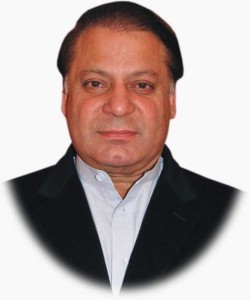Pakistan Revolution Fizzling Out
Last week, I noted that two opposition parties in Pakistan were organizing what they said would be massive marches on Islamabad aimed at bringing down Pakistan’s government. While crowd size estimates vary widely, it is clear that the hoped-for participation of a million demonstrators fell far short, probably hitting at best 5% of that total. With the turnout so low, Reuters reports that most Pakistani newspapers this morning are running editorials critical of Imran Khan and his PTI party:
The government’s offer of talks followed a call from Khan on Sunday for his supporters not to pay taxes or utility bills. His appeal met with widespread ridicule since most Pakistanis who can get away without paying taxes and utility bills already do so – a major contributor to the country’s economic woes.
In a veiled threat, Khan also warned that he may not be able to stop his supporters from marching on parliament and the fortified enclave where most foreign embassies are located.
Such a move would be a recipe for violence given the heavy deployment of riot police and paramilitary forces.
On Monday morning, most newspapers published critical editorials of Khan and his Pakistan Tehreek-e-Insaaf party.
“Were Mr. Khan’s threats not so risible they would be worthy of the severest condemnation,” said Dawn, one of the country’s most respected papers.
But it appears that the marchers will be given access to the Red Zone around parliament:
The Supreme Court has rejected the federal government’s plea seeking to restrain protesters from moving toward the Red Zone area of the capital.
“That is something for the government to handle,” Chief Justice Nasirul Mulk said, while rejecting the attorney general for Pakistan’s (AGP) plea to pass an order stopping protesters of the Pakistan Tehreek-e-Insaf (PTI) and Pakistan Awami Tehreek (PAT) from entering the area.
Perhaps because his proposal about boycotting taxes and utility bills has been met with ridicule, Khan’s party is trying to clarify somewhat:
Speaking to Dawn, Ghani said provincial taxes will be collected as per routine but the public will not be paying any federal taxes along with electricity and gas bills.
He said the civil disobedience movement was against the corrupt and incompetent federal government and not the government managing the province.
And it turns out that PTI believes it has some leverage in this move:
Responding to a question, Ghani said that if the centre dared to disconnect power supply to KP, the province will have the right to stop supply from Tarbela which falls within the provincial jurisdiction.
That is quite a threat, since the generators at Tarbela dam supply 16% of Pakistan’s electricity. The dam sits only about 30 miles from Islamabad.
Meanwhile, both Khan and PAT leader Tahirul Qadri have given the government 48 hours to respond to their latest demands, and Qadri has outright rejected the idea of talks with a government-appointed committee.
I will keep an eye out for further developments, but it looks now as though Nawaz Sharif and his government will survive this challenge.

